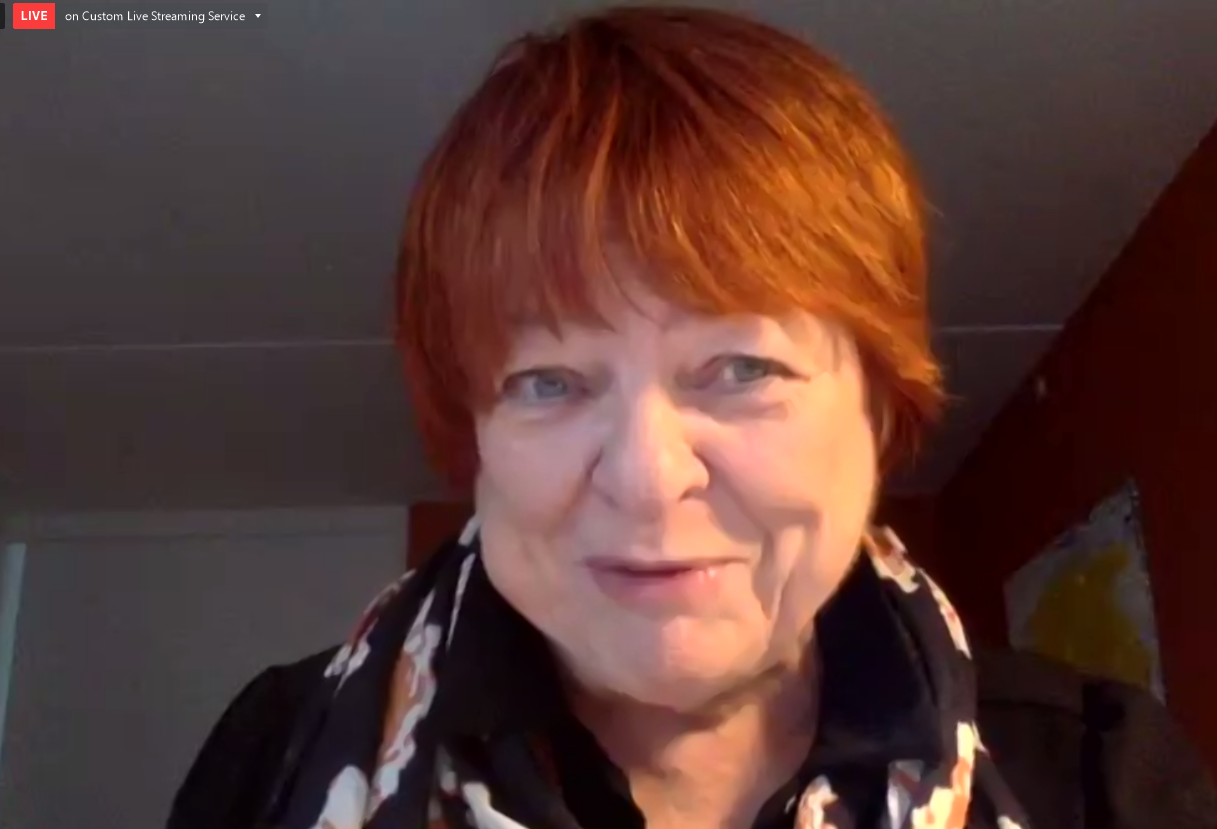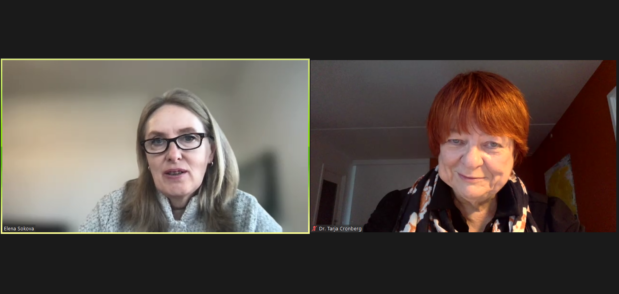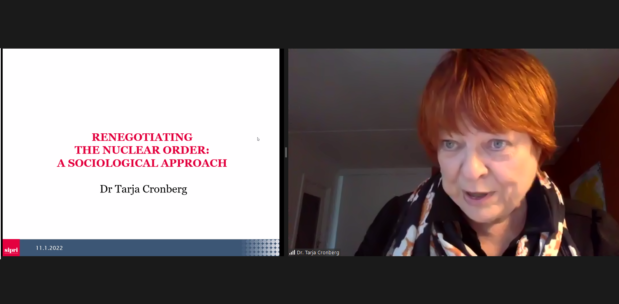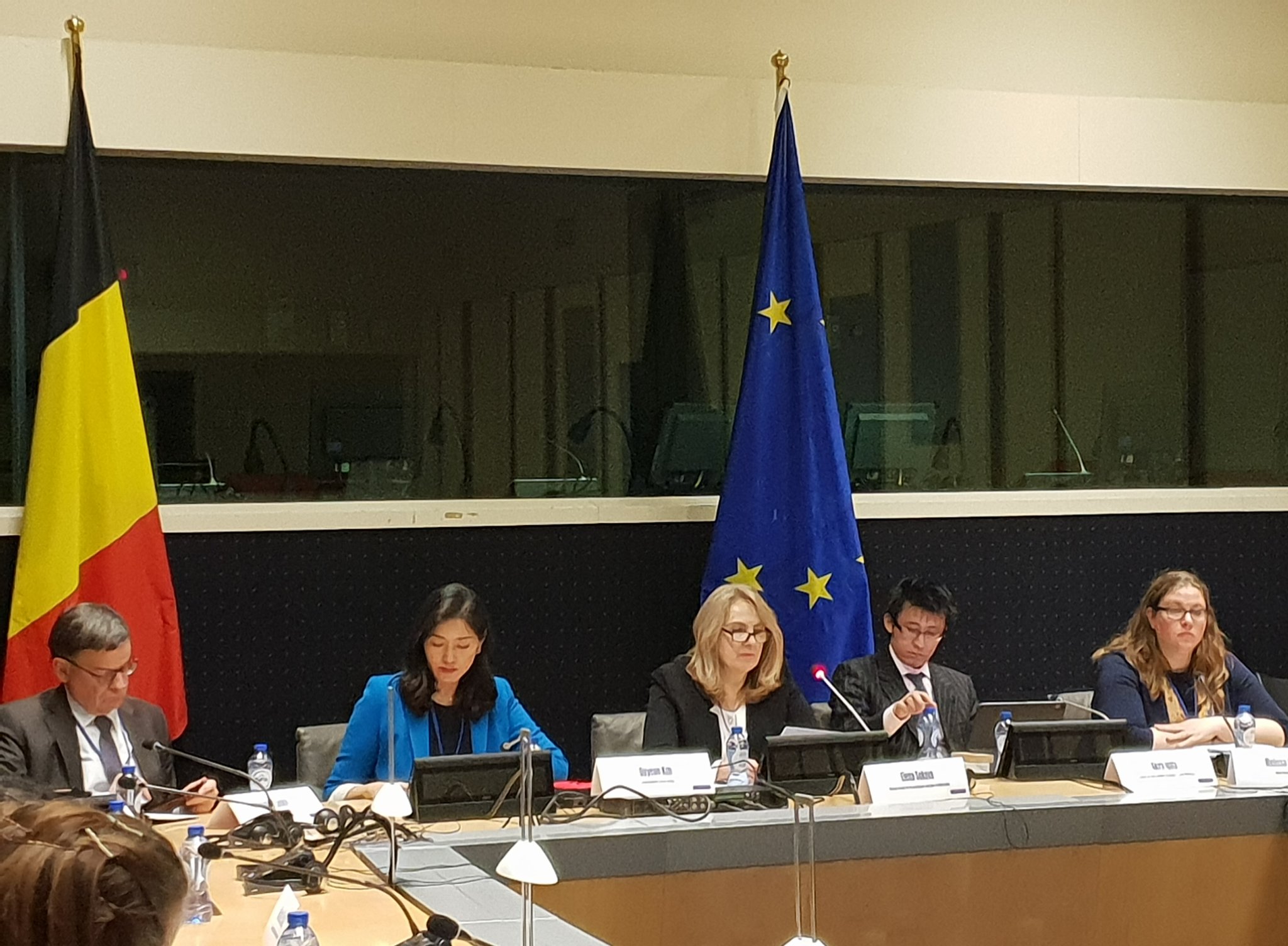
On 11 January 2022, the VCDNP hosted a webinar featuring Dr. Tarja Cronberg, the author of Renegotiating the Nuclear Order: A Sociological Approach. Dr. Cronberg is a Distinguished Associate Fellow at the Stockholm International Peace Research Institute (SIPRI), a member of the Executive Board of the European Leadership Network (ELN) and the Chair of the Finnish Peace Union. VCDNP Executive Director Elena K. Sokova moderated the event.

Dr. Cronberg set the scene for the discussion by introducing the concept of the sociology of technology. She argued that the approach stresses the technological nature of the nuclear order and allows experts to view nuclear weapons from a different perspective than the classical international relations theories. To unpack the sociology of technology she provided an overview of its sub-concepts. One of the key sub-concepts is a “seamless web,” where the social world and the technological one are intertwined.
Within this web, Dr. Cronberg introduced closely interrelated sub-concepts of a “relevant social group” and a “technological frame.” The technological frame defines a social group. According to Dr. Cronberg, nuclear order shapes social groups which have different technological frames. She further explained that the nuclear order is divided into a system of deterrence and a system of abstinence. The system of deterrence incorporates those who have and/or rely on nuclear weapons for security: five nuclear-weapon States (NWS), four nuclear-armed States outside the NPT and States that benefit from extended nuclear deterrence. The system of “abstinence” includes threshold States, exit States, States in nuclear-weapon-free zones (NWFZ), and States party to the Treaty on the Prohibition of Nuclear Weapon (TPNW). Nuclear deterrence and nuclear abstinence define the relevant technological frames of the respective social groups.
Another concept – “interpretative flexibility” – refers to the versatility in the use of technology. It claims that at the very beginning technology is flexible in terms of its application, but with increased use, the technological flexibility becomes reduced. In the context of the nuclear order the indefinite extension of the NPT in 1995 led to a stabilisation of the technological order and a reduction in interpretative flexibility on the nuclear order.

In her analysis, Dr. Cronberg focuses on the NPT and the norms embedded in it. She argues that it is the disarmament norm that has held the NPT and the nuclear order together. However, the question is whether the disarmament norm can sustain the non-proliferation regime now that the entry into force of the TPNW has introduced a new prohibition norm into the regime.
In addressing this question, Dr. Cronberg’s analysis is threefold. First, she identifies a clash between the disarmament and deterrence norms. Dr. Cronberg claims that recent debates among disarmers and deterrers have demonstrated the widening norm gap between the two viewpoints and this is becoming increasingly more visible within the NPT review process as well. Importantly, she adds, the clash between deterrence and prohibition cannot be solved in the NPT. Second, the balance of obligations on NWS and non-nuclear weapon States (NNWS) is unequal. In her view, NWS have not fulfilled their disarmament obligations, while the rights of NNWS have been undermined. The question is whether it is possible to save the balance or if there is a need to renegotiate a new balance.
Third, social groups can serve as change agents in the nuclear order. Within the system of deterrence the NWSs are well organised and can serve as agents of change. Whereas, within the system of abstinence, the NWFZ States can potentially affect change given their double commitment to the nuclear-free status under the NPT and NWFZs. The problem is that while NWFZ States are well organised regionally, they are poorly organised globally. Dr. Cronberg highlights that NWFZ States' interest in the nuclear order is very specific in wanting to achieve negative security assurances, so they could use their majority to initiate negotiations to ensure that NSAs are defined within the parameters of a newly concluded Treaty.
Dr. Cronberg concluded the presentation by outlining some policy recommendations resulting from the analysis, including an unconventional suggestion to re-negotiate the NPT as well as the TPNW to better align them with their respective goals – non-proliferation and disarmament.
The full recording of the webinar event can be found below.

